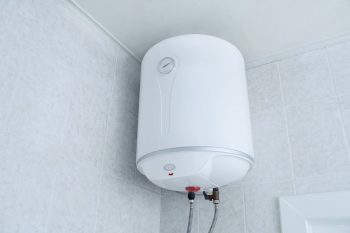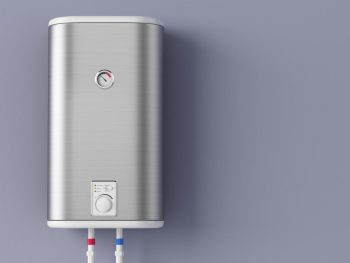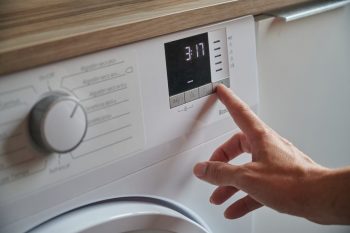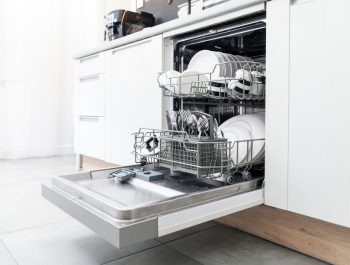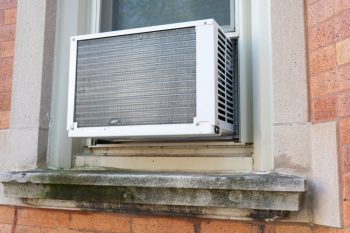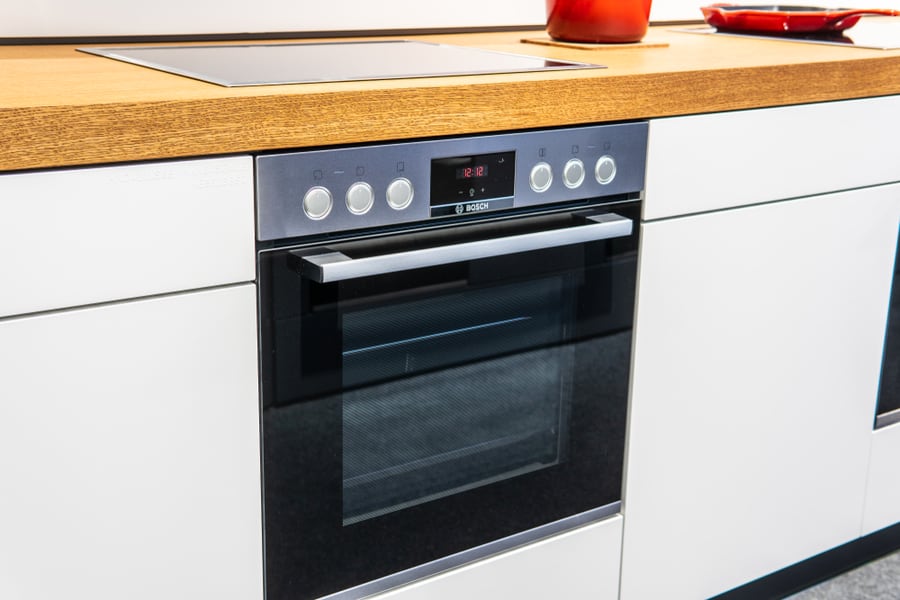
So, you’re just about to prepare dinner only to find that your Bosch oven isn’t heating up. While malfunction might delay your meal, there are some easy ways to resolve the problem as long as you know what’s causing it.
Which leads us to the question, what are the common causes for a Bosch oven not heating up?
- Power supply issues may cause problems with a Bosch oven’s heating performance.
- If there was a recent power outage, you might have to reset the oven’s clock to get it to work again.
- Check to see that the thermostat is calibrated. If it’s damaged, have it replaced.
- Inspect the thermal fuse for possible replacement.
- If none of these solutions work, you may have to replace major components like heating elements and convection motors.
- See to it that the oven’s wires are in proper condition.
From power supply issues to more serious problems concerning heating elements and fuses, several things could go wrong with your Bosch oven.
So if it doesn’t heat up, here are some potential reasons you can consider.
Reasons Why Your Bosch Oven Isn’t Heating Up
Before you consider the possibilities listed here, see to it that you check the user manual first. Different models of Bosch ovens may come with special instructions to resolve poor heating performance.
If you don’t find any answers in your user manual, these suggestions might come in handy.
1. Problems With the Power Source
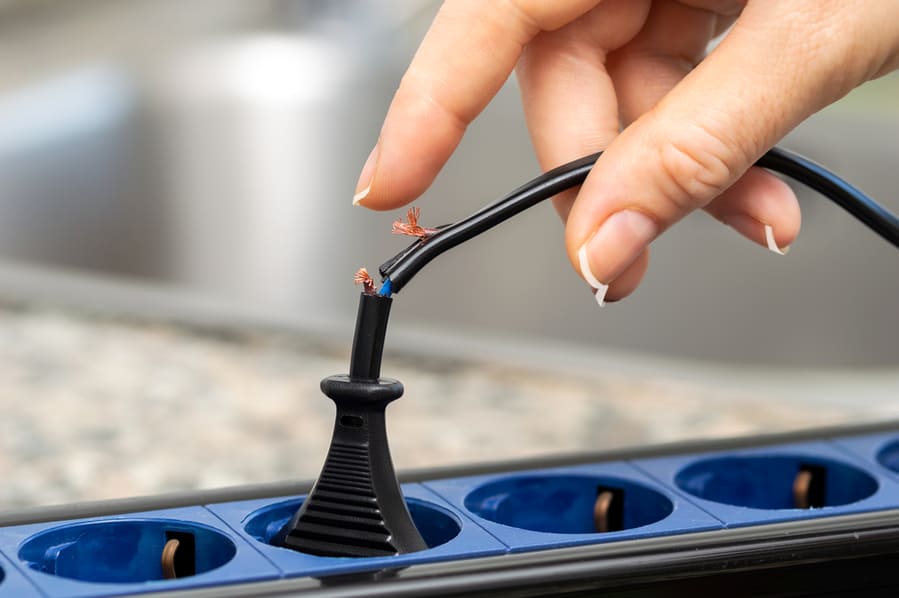
As with any electrical appliance, your first consideration should be the power source. For example, it won’t turn on if your Bosch oven isn’t receiving sufficient or proper electrical power.
But some models will still let you turn the timer knob even then. They may even produce the clicking sound the oven makes when counting down despite the lack of power.
Here are some tips you can try:
- First, check to see if the oven is properly plugged in.
- Make sure that your oven is plugged directly into the wall outlet. Some extension cords can fail to transmit electricity properly, causing problems with your Bosch oven’s functions.
- Inspect your breaker. See to it that the switch to your kitchen isn’t shut off. Check for blown fuses, especially after a power outage.
2. Clock Reset Error
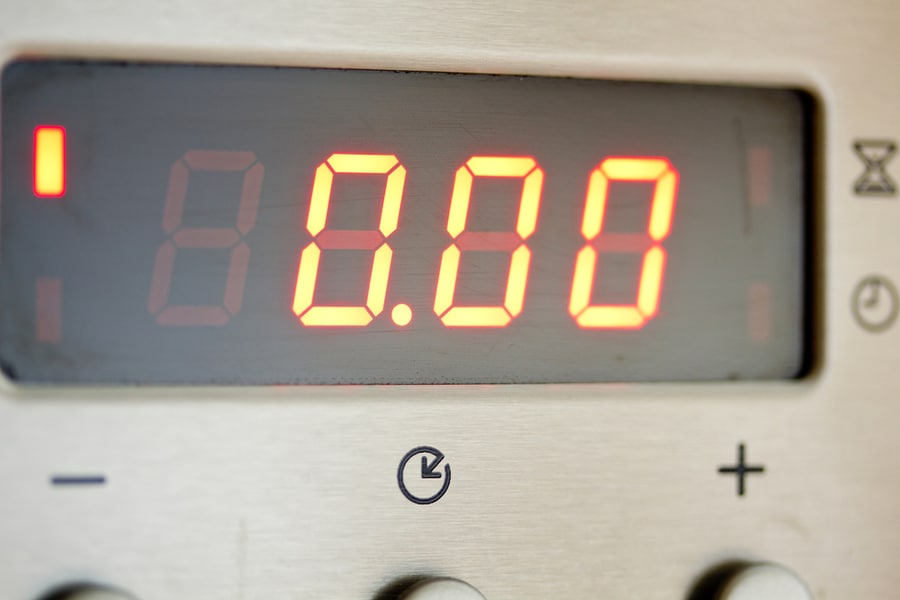
Regarding power outages, your Bosch oven’s clock will reset to 00:00 after a power interruption. When this happens, your oven will refuse to operate until you reset the clock. Setting the time should have the oven working as it used to.
Most Bosch ovens will have an intuitive control panel that lets you easily adjust the time. Of course, you can always consult your user manual if you can’t figure it out. Time settings are usually the first instructions listed.
3. Thermostat Calibration
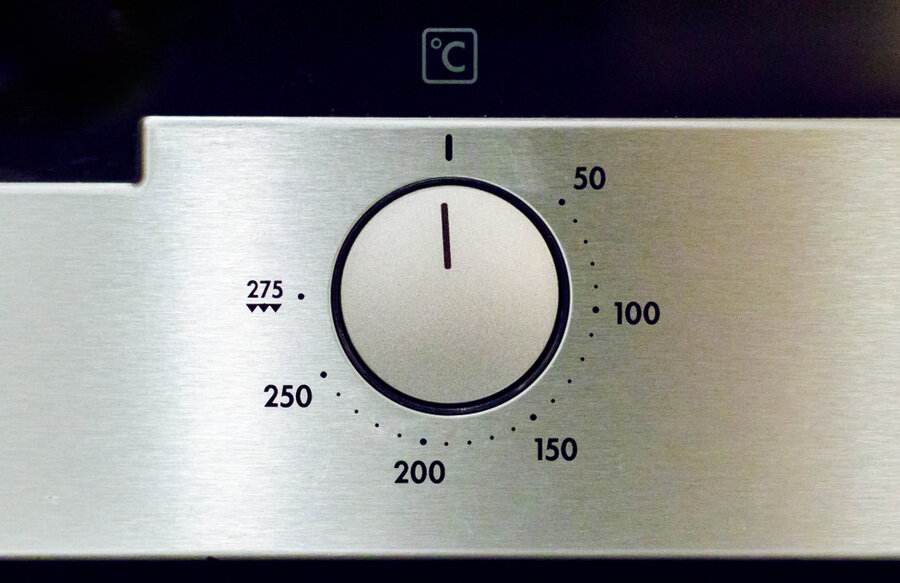
Inside your Bosch oven is a thermostat that constantly checks to see if internal conditions match the temperature you choose using the control panel.
If the thermostat isn’t calibrated, your Bosch oven could fail to achieve and maintain proper temperatures. The result could be undercooked meals.
Check your user manual to see how you can calibrate the thermostat. Most Bosch ovens will let you make adjustments in increments of 35°F. However, the thermostat could be damaged sometimes, which may require replacement.
4. Thermal Fuse Replacement
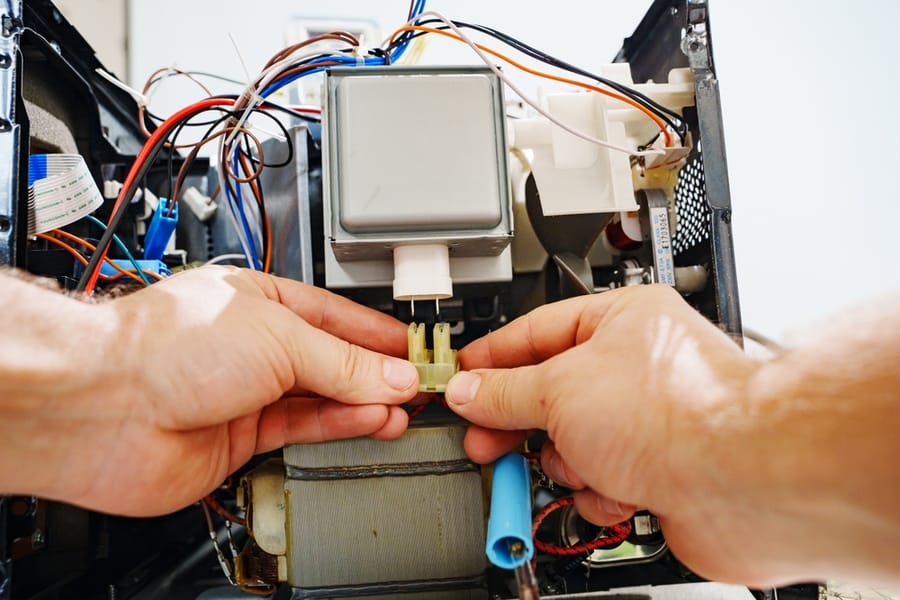
Every oven has a thermal fuse, whether a Bosch or from another brand. This safety feature monitors the temperature inside the oven.
The fuse blows and turns the appliance off if the oven gets too hot. This prevents overheating and potential fire.
If your thermal fuse blows after detecting exceedingly high temperatures, the oven will stop working until it’s replaced.
So although models with a knob timer might appear to turn on, they won’t heat up. The only way to get your oven to work again would be to replace the blown thermal fuse.
Your Bosch oven will not blow a thermal fuse for anything. While some might blow during the self-cleaning cycle, others will only go out if they detect temperatures beyond the safe range.
Although some Bosch ovens will blow a thermal fuse because of problems with the self-cleaning feature, most models will only blow this safety measure if and when it’s necessary. Unfortunately, that means your oven could be overheating.
While replacing the thermal fuse will get your Bosch oven to work again, it will repeatedly blow until the overheating problem is resolved.
5. Major Repairs
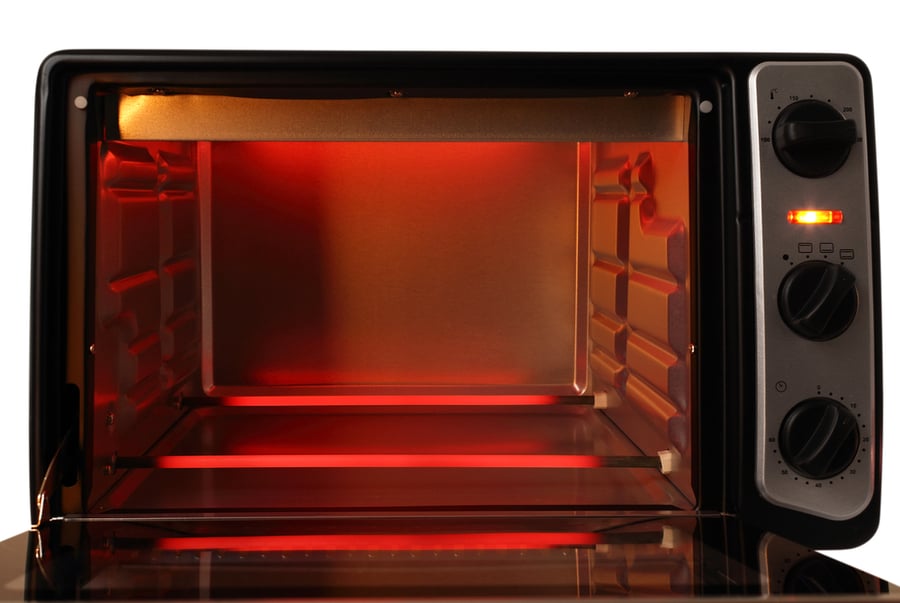
If your oven is one of the kitchen appliances you often use (and possibly abuse), then one of its integral parts may have given way.
These can include the following:
- Heating Element – Your oven has a set of long rods that turn red when turned on. Those are your heating elements. First, turn on your oven to see if they still turn red. If they don’t, it’s probably time to replace them.
- Convection Motor – A Bosch convection oven uses a fan that circulates the heat to cook your food evenly. If the motor is broken, the fan won’t turn. This leaves you with undercooked food. Repairing or replacing the convection motor should resolve the problem.
It might be tempting to perform a DIY repair, especially if there are sufficient guides online to guide your steps. But unless you’ve had previous experience with the internal workings of a Bosch oven, then you might cause more damage.
Always call in a professional to perform major repairs and part replacements. This won’t only keep your oven in good working condition but will also maintain your warranty.
6. Check the Wiring
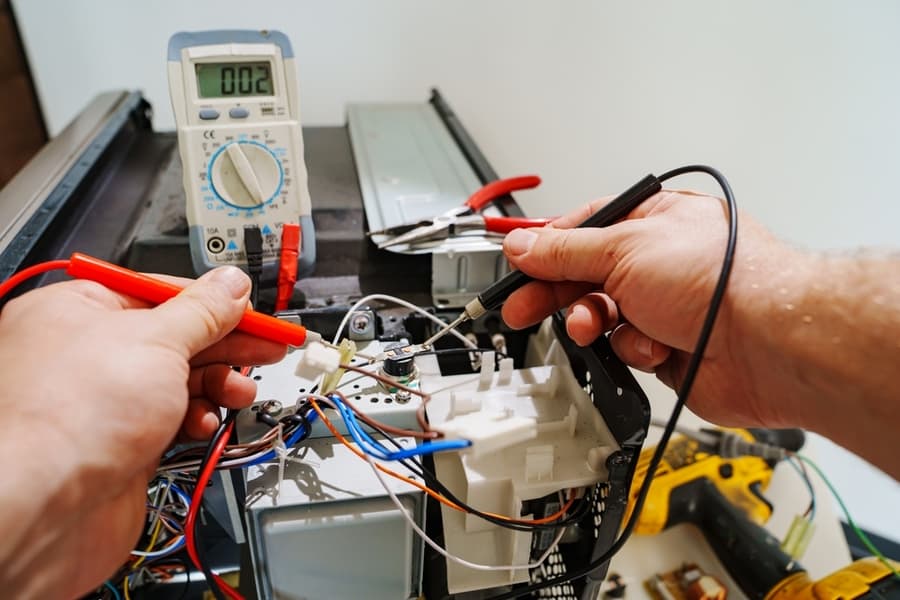
If all else fails, there might be an issue with the wiring. Pests can get behind an oven and gnaw away at wires. Sometimes, poor ventilation, pent-up moisture, dirt, and debris can wear away the wires, especially if your Bosch oven isn’t installed in ideal conditions.
If none of the other solutions work, you’ll know it’s a wiring problem. Call an electrician to check the wires behind your oven in this case. If it’s built into a wall, you may have to pull it out of its placement to inspect its wires.
Conclusion
If your Bosch oven has stopped heating up, you should consult your user manual first. But if that doesn’t turn up any viable explanations, you can check for these possible causes.
If you need to perform any major repairs, see that you call a professional to keep your oven in good condition.
Frequently Asked Questions
Can You Replace an Oven Heating Element on Your Own?
Yes, you can. Oven manufacturers don’t intend for heating elements to last forever. However, these parts may require replacement after several years, so brands like Bosch can change the elements without too much expert knowledge.
You should find steps to replace the heating element in the user manual. Most of the time, you will need a screwdriver and the corresponding replacement parts.
How Much Does Convection Motor Replacement Cost?
It depends on the model of your Bosch oven and your location. Typically, prices for these services range from $100 to $300. However, the whole replacement can be performed in under a few hours.

